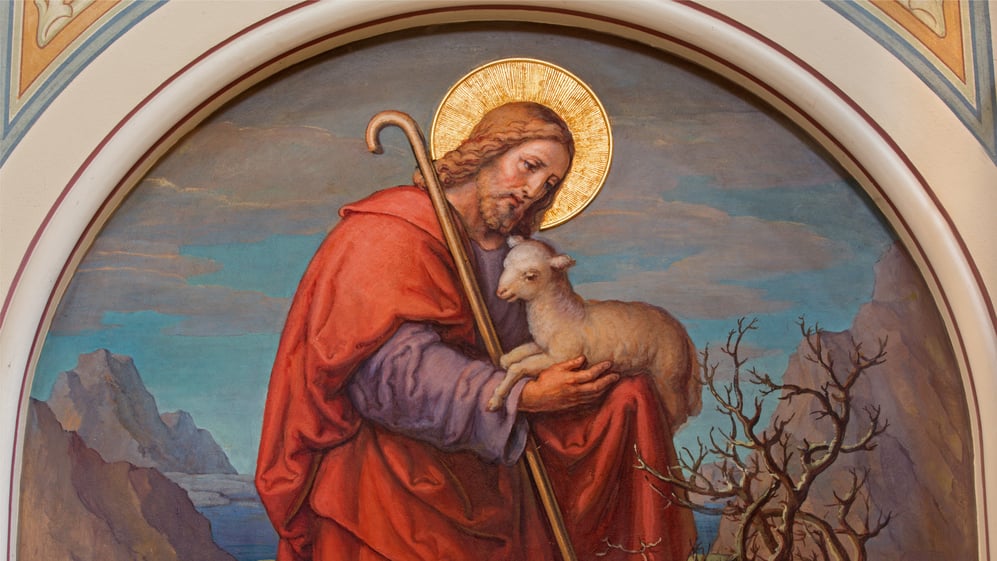As a prophet familiar with patience, Micah’s words are especially pertinent during our wait for Christmas during Advent.
Setting the Scene
Micah prophesies to the people of Israel and Judah at the cusp of great tragedy. The two nations were in a state of apostasy. The word apostasy is a combination of two Greek words: apo, meaning “away from” or “off of,” and stasy, meaning “to stand.” Together, they convey the meaning of standing or stepping away from. In this case, the people of Israel and Judah stepped away from the fear and love of the Lord.
When God led Joshua’s armies into the Promised Land, He charged them to drive out all pagans and idol worshipers and to have no part with those who belonged to these false religions. Unfortunately, the leaders of Israel and Judah did not listen. They led the people to include false gods in their worship of the one true God, to build religious facilities and monuments to idols, and to intermarry with idolaters. Through the prophet Micah, the Lord brings a warning of coming chastisement at the hands of the Assyrian Empire in the year 721. Micah writes: “Therefore I will make Samaria a heap in the open country, a place for planting vineyards, and I will pour down her stones into the valley and uncover her foundations” (1:6).
Micah and Advent
There are three important connections we can make between Micah 5:2–5a and the season of Advent. Advent is a penitential season. When Micah wrote, the people should have been in a season of penitence. Had they been, perhaps they could have avoided catastrophe. Second, Advent is also a time of waiting. Following the Assyrian and eventually the Babylonian invasion, the people of Israel and Judah were waiting, languishing in fact, for a deliverer. Micah prophesies this Deliverer in verses 4 and 5: “And He shall stand and shepherd His flock in the strength of the LORD, in the majesty of the name of the LORD his God. And they shall dwell secure, for now He shall be great to the ends of the earth. And He shall be their peace.” Finally, both the season of Advent and this passage from Micah point us to the return of Christ at the end of human history, a time of both retribution for those who have rejected Christ, and a time of deliverance and peace for the faithful. Unbelievers will spend eternity under the everlasting rule of condemnation, and the faithful will be released forever from this sinful world.
Mining the Gems
The Gospel writer Matthew quotes this passage from Micah as he conveys the visit of the Magi following the birth of Jesus. To invoke Micah in the context of the visit of the Magi presents a couple of ironic contrasts. In Micah’s time, the idol-worshiping Assyrians came from the East to invade and subjugate the people of Israel. In Matthew’s day, the Magi came from the East to locate and worship the ruler who had come to liberate Israel from her subjugation to sin. Where Israel’s learned teachers should have been the first to seek and worship the prophesied Deliverer, it was the learned, yet unbelieving (at least until they came to see Jesus), Magi who traveled from afar and even defied a king.
Law
- Because of Israel’s apostasy, the Lord allowed calamity to befall her. The people there lived in the misery of subjugation for generations, missing the kind of freedom and peace the Lord desired them to have, which would have come from worshiping Him alone. This was tragic. The same is true today, although more for some than others. Many people of the world live in subjugation at the hands of wicked, or at least incompetent rulers. Even in the United States, we suffer to the extent that our rules do not trust in or at least govern according to God’s will.
- To whatever extent people live in earthly subjugation, those who do not know Jesus live in complete spiritual subjugation to the devil. Every single person is ruled; it’s just a question of whose rule he or she lives under. There are no spiritually independent people. Even as Christians, we live with the vexing occupation of the sinful nature. In Christ, we are liberated and live under Him. Yet we daily struggle with the Old Adam, which seeks relentlessly to reassert his demonic rule.
Gospel
- Comparing the times of Micah and Matthew offers a further ironic contrast. Where the Assyrians dominated by force and for their own ends, Jesus established His kingdom through active fulfillment of the Law and passive suffering, and did so for the sake of sinners. Jesus fought for our salvation by combatting successfully against temptation and meeting fully God’s expectations. He battled against the forces of darkness on the cross to pay the dear price for our sin. Having earned this Kingdom, Jesus brings His dominion to individuals through the work of the Holy Spirit in the Word and Holy Baptism, creating saving faith.
- As our passage from Micah pertains to Bethlehem Ephrathah, the meaning of these two words becomes important. Bethlehem means “house of bread” and Ephrathah, “fruitfulness.” One cannot help but see a connection to the bread and wine under which we find the true body and blood of our Savior, Jesus Christ, in the sacrament of Holy Communion. Having earned His kingdom and established it in our heart, the Lord maintains and grows our faith with this Means of Grace.
The Concordia Commentary series digs deeper into the prophesies of Micah.












